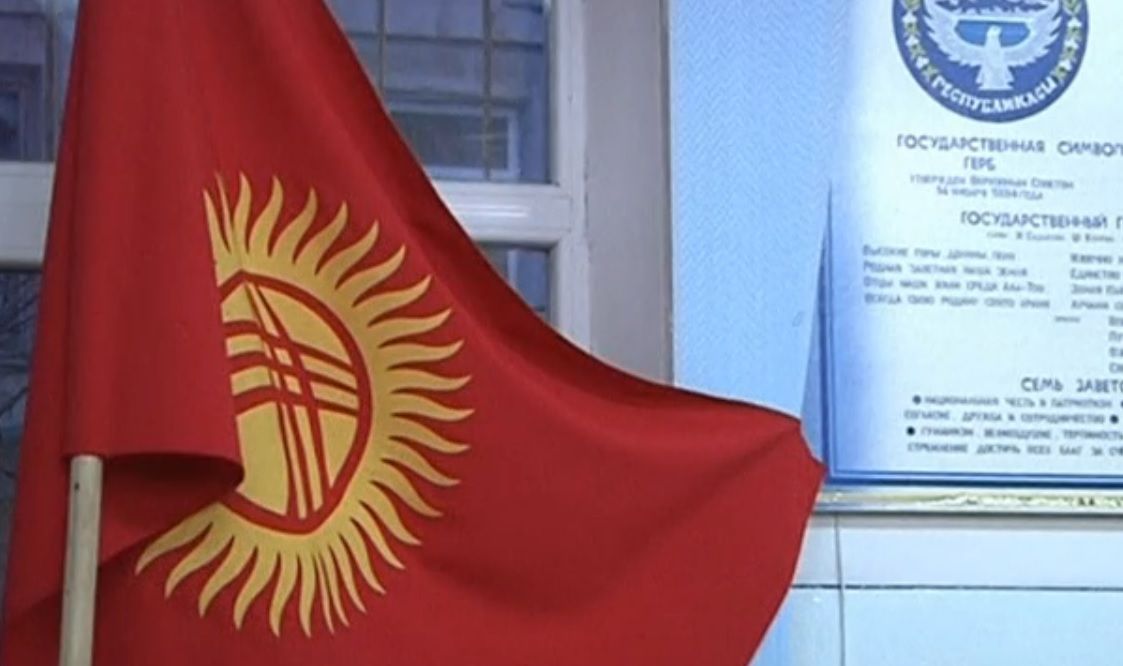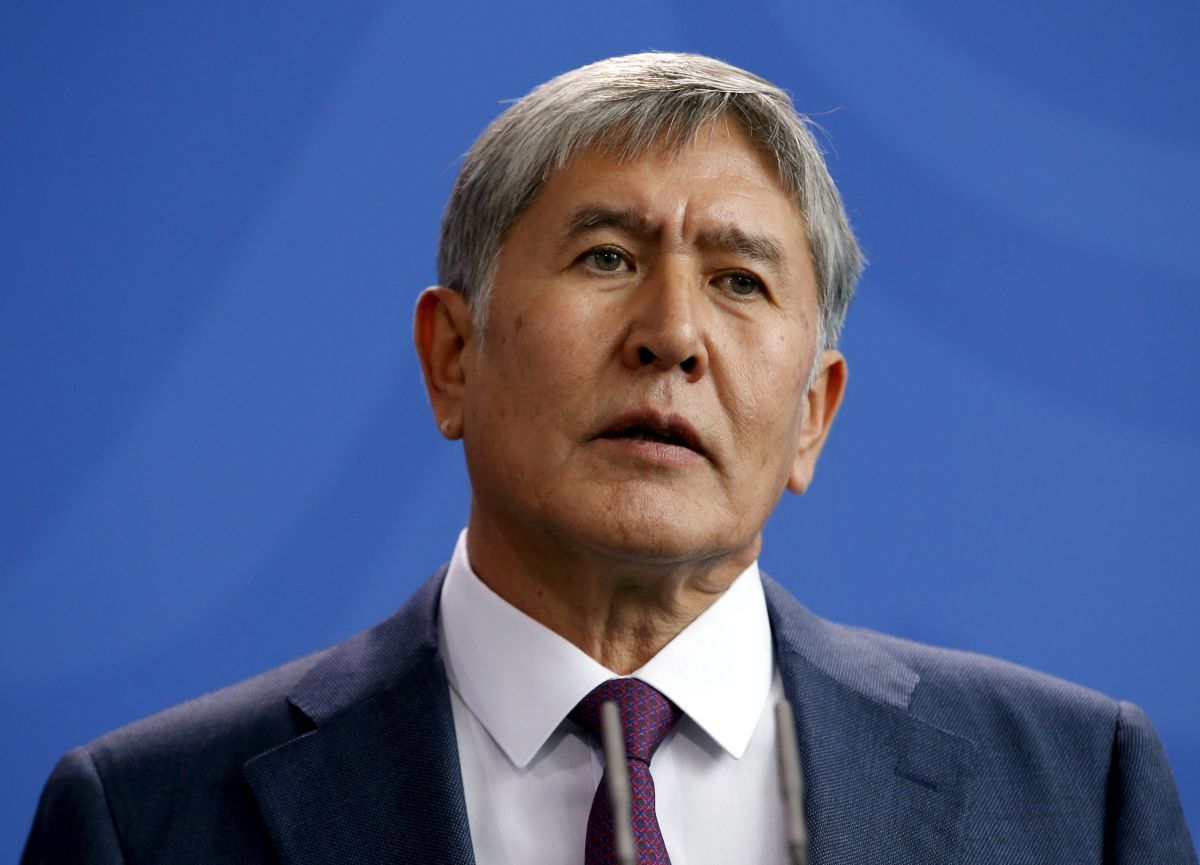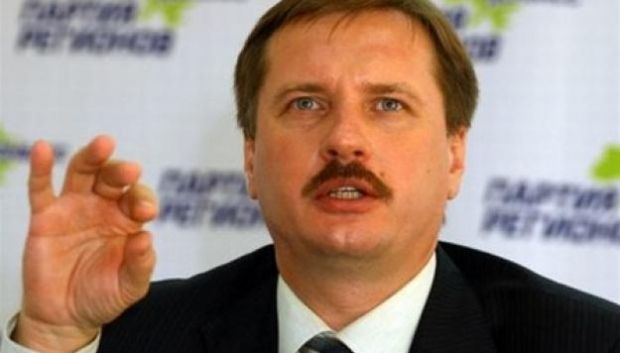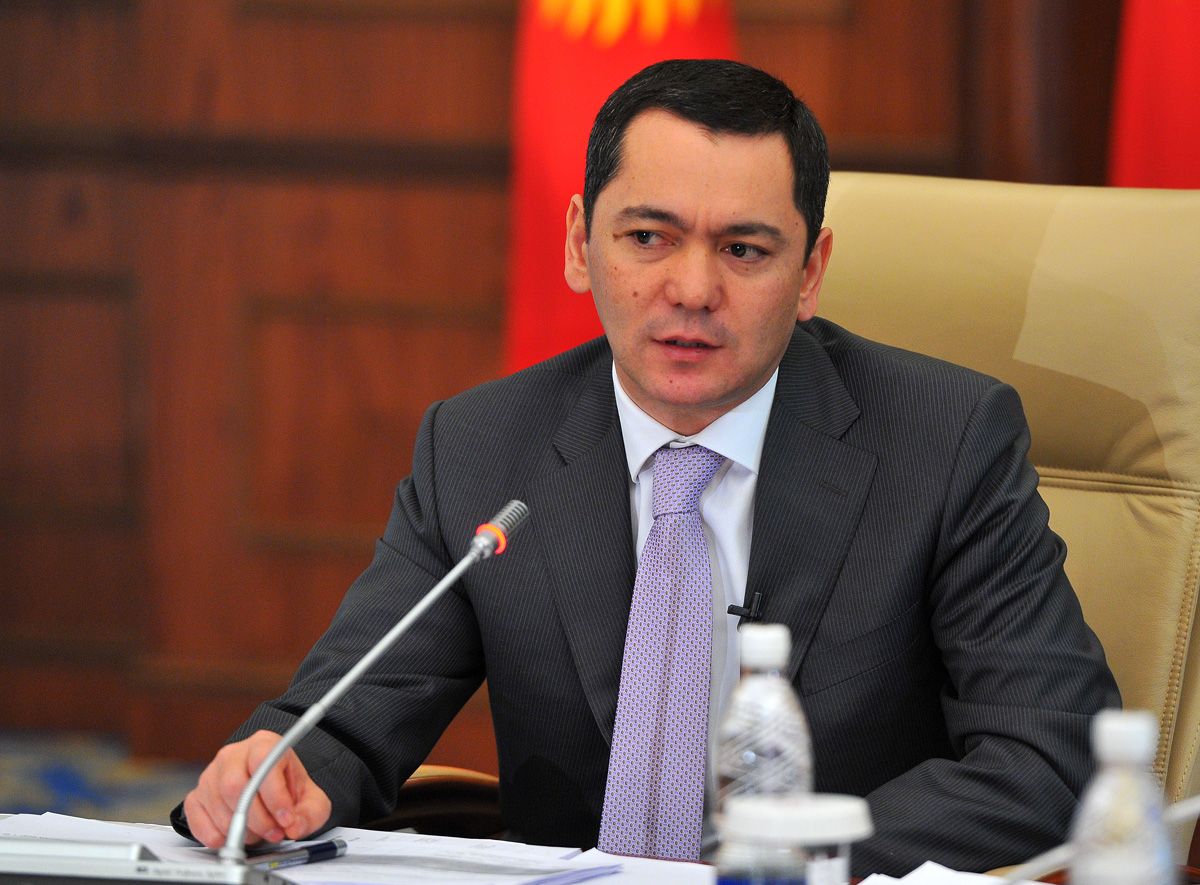
Games of Democracy
While the attention of many Ukrainians remains focused on the vicissitudes of big politics in the EU, some curious things are happening in the opposite direction, in Asia. This autumn, fateful elections were expected not only in Germany and France but also in ... Kyrgyzstan.
On October 15, the first presidential elections in many years are to pass in Kyrgyzstan without a revolutionary shake-up and a forceful change of power as a consequence. At least so it seemed until recently.
Background tips
To begin with, it is worth remembering the history of the issue. The very first presidential elections after Kyrgyzstan gained independence were held in October 1991. The only candidate and winner was Askar Akayev, who enjoyed over 95% of the votes. By the next elections in December 1995, he had managed to prepare the ground for another victory: the central election commission, based on the new Law on presidential elections, established a number of restrictions for candidates. In particular, the candidate had to collect at least 50,000 voters' signatures in three months, and then have them verified within a week at the local self-government bodies (keneshes). As a result, out of six candidates for the post the board of the Supreme Court of Kyrgyzstan recognized three as invalid. Akayev won again, supported by 71.5% of the country's population.
In 2000, the situation did not change. Although there were six candidates this time, Askar Akayev won again, receiving 76.4% of the vote. But in five years, in March 2005, mass protests erupted in Kyrgyzstan. First, the opposition was against Akayev’s nomination for his fourth term, while the Constitutional Court refused to consider the issue of eligibility of such actions by the president. Secondly, the last straw was parliamentary elections, where CEC refused to register opposition politicians, while the president pushed his cronies through to parliament, including members of his family.
The Revolution of Tulips ended with the overthrow of the incumbent president: Akayev signed a statement on his resignation from the presidential post and fled the country, having been granted a temporary asylum in Russia. Kurmanbek Bakiyev was appointed by parliament an Acting President and Prime Minister of Kyrgyzstan. As early as June 2005, he won the presidential election, gaining more than 88% of the vote.
It is interesting to note that Bakiyev failed to draw conclusions from the fate of his predecessor, and in four years his presidential chair began to sway. The reason was the reforms that he was carrying out, in particular, the amendments to the Constitution, allowing the president to usurp power; building a party system following Russia’s example with the creation of a single pro-presidential political force; parliamentary elections, after which the president's party received the maximum number of seats, while opposition parties receive no mandates at all... The last straw could be considered the presidential election of questionable legitimacy in the summer of 2009. It remained questionable, since Bakiyev’s victory, allegedly with 76% of the votes, was recognized only by observers from the CIS. At the same time, the OSCE observer mission gave the opposite assessment, stating violations during the vote.
The next revolution put an end to Bakiyev's rule: in April 2010, power in Kyrgyzstan was seized by the opposition and an interim government was created headed by Roza Otunbayeva (later, she became president of the transition period - from May 19, 2010 to December 31, 2011), and the ousted president was to be tried. However, he and his family had already fled the capital but agreed to resign in exchange for security guarantees. After negotiations with the opposition, Bakiyev signed a resignation petition and moved to Belarus, where he was granted a political asylum, and later - citizenship, by Belarus leader Alexander Lukashenko. In February 2013 in Kyrgyzstan he was found guilty of abuse of power and sentenced in absentia to a 24-year imprisonment in a high security penal colony.
Another outcome of this revolution in Kyrgyzstan was the change of the Constitution. It was adopted in June 2010 in a nationwide referendum and assumed, in particular, that the Republic of Kyrgyzstan would become a parliamentary-presidential state, while the president would be elected for six years, but will not be allowed to run again.
After that, the parliament determined the date for the new presidential election, October 30, 2011. To become official participants of the presidential race, the candidates not only needed to collect 30,000 signatures in their support, but also pass a test for their command of the Kyrgyz language. The parade of candidates numbered more than 80 people, and the winner was a Social Democrat nominee Almazbek Atambayev.
Now his term is nearing a completion but it is already obvious that he does not intend to part with the power easily.

Political "give-away"
Formally, the president of Kyrgyzstan Atambayev does not hold on to power. First, unlike his predecessors, this spring, when the opposition expressed dissatisfaction with the upcoming presidential election process, he went for concessions to his opponents. In particular, they insisted that the November 19 election date, established by the Central Election Commission, violates the Constitution. They say that in this case Atambayev will have stayed in office for more than six years. That’s especially if the elections extend into the second round. Therefore, the election date was postponed from November 19 to October 15.
Secondly, the president made no attempt to change the Basic Law in order to run for re-election. On the other hand, local political analysts rated the nomination of acting Prime Minister Sooronbai Jeenbekov a single candidate from the Social Democrats as an attempt by Atambayev to maintain actual levers to continue to rule the country. In fact, in this case, the whole security block would remain under the control of a “crony”. The thing is that the prime minister in Kyrgyzstan is considered a spineless politician with a low rating. The only factor in his nomination the local political experts call his obedience to President Atambayev.
On the other hand, there are also worrisome signals that indicate the use of administrative resources. For example, take the issue of the postponement of the election date: the parliament has not yet made the appropriate decision (we do remember that Kyrgyzstan is a parliamentary-presidential republic), while the president has already stated that the Central Election Commission will make a new decision about the date of voting (that’s what has actually happened).
In favor of such fears speaks the way how nominees for the post just keep being eliminated from the race, one by one. The reasons are the same as under previous presidents. Thus, out of more than 50 people, the number of candidates has dropped to just 10: more than half of them failed to submit the required number of voters' signatures in time, or prove their authenticity, while another part flunked their language test.
But this is most clearly manifested in the struggle for the Uzbek minority votes. The fact is that the second largest ethnic group in the country amounts to about a million people (there are a little more than 6 million people living in Kyrgyzstan overall). And now one of the favorites of the presidential race, opposition’s Omurbek Babanov, is trying to win the hearts of this part of the electorate. In response, according to local journalist Ulugbek Babakulov, the authorities resort to dirty methods of denigrating the candidate and "start to unleash the nationalism issue." "It always happens when the authorities need to eliminate some dissenting journalist, as was the case with me, or a politician," he wrote on Facebook.
To this end, in particular, pro-government media are used that relay the oppositionist's speeches, pulling certain phrases out of context and putting into the minds of voters the idea that Babanov is not a "purebred" Kirghiz, that he is a supporter of separatism and could even plot riots to seize power. In addition, the security block is also involved, hindering campaign meetings and rallies, and also intimidating local residents to keep them away from rallies led by a "wrong" presidential candidate ...
Preventing a "coup"
"The current government does have reasons to fear that Uzbeks will make the "wrong" choice. And if the majority votes for Babanov (it seems to be the case), then even falsifications will not help to hide the real outcome of elections," the journalist is convinced.
President Atambayev does not like the fact that the leaders of the neighboring states - Kazakhstan and Uzbekistan - are paying attention to the opposition’s major nominee. The September meeting between Babanov and President of Kazakhstan Nursultan Nazarbayev turned into an international scandal: Atambayev criticized this meeting harshly and accused his Kazakh counterpart of interfering in the affairs of Kyrgyzstan, while the country's Foreign Ministry handed a note to the Kazakh ambassador. In response, brushing off accusations, the Kazakh Foreign Ministry reminded that a little earlier Nazarbayev had met with another favorite of the presidential race, the pro-presidential candidate Jeenbekov, so it would be absurd to speak of any interference in this regard.
On the other hand, Atambayev himself also met with Russian President Vladimir Putin and, most likely, persuaded the latter in the ability of his protegee to ensure a course for maintaining and developing relations with Russia. In particular, in the beginning of October, the media reported that Russia and Kyrgyzstan were negotiating the deployment of a second Russian military base (on the border with Tajikistan). According to Kyrgyz officials, this will become a security guarantee "not only in Kyrgyzstan, but also in the region as a whole."

At the same time, foreign policy expert Taras Chornovil believes that the speech is rather about internal security in Kyrgyzstan than about influencing the region.
"Russian military presence in Kyrgyzstan is already enough to support the seizure of power in the republic if necessary, or provide a foothold, for example, for transferring a limited contingent to Afghanistan," he said.
Indeed, Kyrgyzstan has a joint Russian base located in its territory, including an airfield in Kant, a test naval base at Issyk-Kul, a communication center in the village of Chaldovar, and an autonomous seismic station in Mailuu-Suu. Lease of land and water area will cost Russia $4.5 million a year, while the relevant agreement, which came into force in January 2017, is designed for 15 years (after that it shall be automatically renewed every 5 years).
"In the Russian strategy, Tajikistan is much more important than Kyrgyzstan," Chornovil said. "It's just that Russia cannot lose Kyrgyzstan and cede it to China’s soft expansion."
In turn, a number of Kyrgyz officials, including ex-prosecutor general Kubaybek Baibolov, believe that the emergence of a new Russian base does not in any way affect the internal security of the republic. According to him, it is not worth arguing that the additional military base will provide protection directly to Kyrgyzstan, since every military base, including the Russian one, has its own tasks not related to the security of Kyrgyzstan.
Moreover, it is not obvious that Russia is actually interested in deploying a new military base in the country. Firstly, that’s because Russia already has a large military base in Tajikistan. Secondly, having significantly lost stamina over military campaigns in Syria and Ukraine, the Russian economy could find such an endeavor unreasonably costly.
In anticipation of another revolution?
Returning to the presidential election campaign in Kyrgyzstan, a week before the voting date, the authorities seem to be trying to remove Babanov from the race, using, among other things, the fact that the heads of neighboring states are rather loyal to him. At least that's what the CEC warnings to the opposition candidate look like as well as media spins on the allegedly plotted riots, and the discussion by a number of local experts of the possibility for the president to declare a state of emergency to abolish the elections... Meanwhile, Atambayev has already canceled his visit to Sochi, explaining this by "the revealed facts of the plotting of mass riots on the election day by certain politicians with the involvement of criminal gangs, with some foreign financial support for such politicians."

All this fight of the Kyrgyz authorities with windmills, local experts say, is connected with the fact that there is no confidence in Atambaev's clean victory in this race. At the same time, the victory of the opposition candidate gives no security guarantees to the current president. "Why don’t I believe in Kyrgyz democracy yet? Democracy is when one authority can leave without fear that it won’t be thrown behind bars by a new one. This is it," a Kazakh public figure and an acclaimed political scientist Aidos Sarym wrote on Facebook.
That is why both in the country and beyond, on the eve of the completion of the presidential race, rumors are broiling about a possible new revolution. However, according to the director of the Ukrainian Center for Middle Eastern Studies, Ihor Semivolos, it is pointless to predict whether the electoral race will end with the revolution.
"On the one hand, we see several established trends. The first stable trend is that ethnic nationalism has been growing in Kyrgyzstan. The second stable trend is that, having found itself in such a geopolitical position, Kyrgyzstan cannot jump out of the "trap" between Russia and China. Therefore, having great precautions regarding China, it will still remain in Russian orbit. On the other hand, there are not enough prerequisites for a new revolution today," he said.
The expert notes that the current election campaign, of course, is already quite dirty, while internal tensions do exist, and suspicions that a certain candidate is ready for revolution are being voiced.
"However, much will depend on how the elections are held and whether a significant number of people can me mobilized," he said.
"During the first revolution in Kyrgyzstan, the country’s south rose, playing a key role in ousting Akayev. The second revolution was provoked by the contradictions between the revolutionary authorities, which became such as a result of the first revolution, as well as the contradictions between the Kyrgyz nationals and the Uzbek minority. And what will happen to the third revolution? It's hard to say who can become the driving force and mobilize the population," Semivolos added.
In this regard, the expert believes that, considering the lack of regional mobilization in Kyrgyzstan, external players, no matter if they support a certain candidate or not, don’t count on a revolutionary scenario. At the same time, internal players are in one or another way dependent on external actors. Whoever comes to power in Kyrgyzstan, they will continue to exist within the framework of established trends. In other words, Kyrgyzstan itself, although interesting in some ways to Russians, Americans, Chinese, and Kazakhs, is not the tidbit that some of the major geopolitical players would like to take control of. And each new revolution destroys all institutions of power and brings the country closer to an even greater collapse.
Tatyana Urbanskaya

